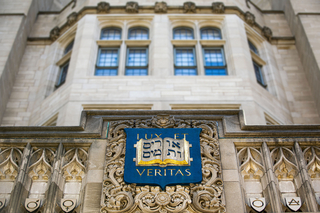Restoration Analyst for the Ecosystem Restoration Integrated Program
This Bekenstein intern at Conservation International will support the Ecosystem Restoration Integrated Program by leveraging technology and research to enhance restoration planning, reporting and storytelling. This role combines technical innovation with ecological expertise to create tools and guidance to scale global restoration efforts and climate change mitigation.
The Ecosystem Restoration Integrated Program is a six-year initiative funded by the Global Environment Facility (GEF) and led by Conservation International (CI). The program’s mission is to restore ecosystems, combat environmental degradation, and support communities’ livelihoods. Aligned with the UN Decade on Ecosystem Restoration, the program aims to restore a diversity of ecosystems from mangroves, wetlands, peatlands, forests, grasslands and savannas across 20 countries: Angola, Brazil, Cambodia, Chad, Congo DR, Cote d’Ivoire, Haiti, Madagascar, Mali, Mauritania, Mexico, Mozambique, Nepal, Peru, Rwanda, Sao Tome and Principe, Sierra Leone, South Africa, Uzbekistan, and Vietnam.
For more information: https://www.ecosystemrestoration.org/
Main responsibilities:
Freshwater for Restoration Calculator
- Conduct research on freshwater benefits in restoration contexts.
- Engage with the Freshwater team and the Conservation Strategy Fund to explore integration of freshwater metrics into the restoration calculator.
Cost of Restoration Work
- Develop practical guidance for countries to compile and report restoration cost data.
- Create templates or frameworks to standardize cost reporting globally.
Spatial Storytelling Automation
- Research and prototype automated Story Map modules that transform restoration data into visually compelling narratives for global audiences.
- Ensure consistency and scalability of storytelling tools across projects.
Cross-cutting
- Collaborate with team members to develop presentations and visualizations of results.
- Participate in team meetings and contribute to brainstorming sessions for new ideas and methodologies.
- Other duties as assigned.
Qualifications
- Knowledge of environmental and climate change issues including understanding of technical terms is required.
- Familiarity with environmental economics, freshwater ecosystems, and restoration is preferred.
- Experience with GIS and/or Story maps is preferred.
- Strong analytical and problem-solving skills.
- Excellent written and verbal communication skills in English. Knowledge of other languages such as French, Portuguese or Spanish is a plus.
- Ability to work independently and as part of a team.
- Attention to detail
- Open-minded
Timeline
Week 1: Introduction to team and program
Week 2-8: Freshwater research. Cost restoration research. Spatial storytelling research
Week 9: Freshwater metrics integration recommendations
Week 10: Restoration costs templates and guidance developed
Week 11: Story Map prototype developed
Week 12: Wrap-up
Background
Since 1987, Conservation International has worked to spotlight and secure the critical benefits that nature provides to humanity. Combining fieldwork with innovations in science, policy and finance, we’ve helped protect more than 6 million square kilometers (2.3 million square miles) of land and sea across more than 70 countries.
Conservation International’s approach to conservation puts human well-being on equal footing with environmental goals. We respect human rights, ensure our programs are designed with gender equality in mind and create opportunities for local communities to earn a living while also helping nature.
Our work is focused on four pillars:
- Innovations in Science - Conservation International is behind some of the most extraordinary, cutting-edge conservation science taking place today. Our research is cited more than leading universities.
- Innovations in Finance - From our launch of the world’s first debt-for-conservation swap in 1987, Conservation International is changing the equation to make nature more valuable alive than destroyed.
- Partnering with Communities - Respecting the rights of Indigenous people and local communities was one of our founding principles, and it guides our work to this day.
- Working with Governments - Our science and expertise are helping governments take action to protect nature and the benefits it provides to people.
For more information: https://www.conservation.org/
